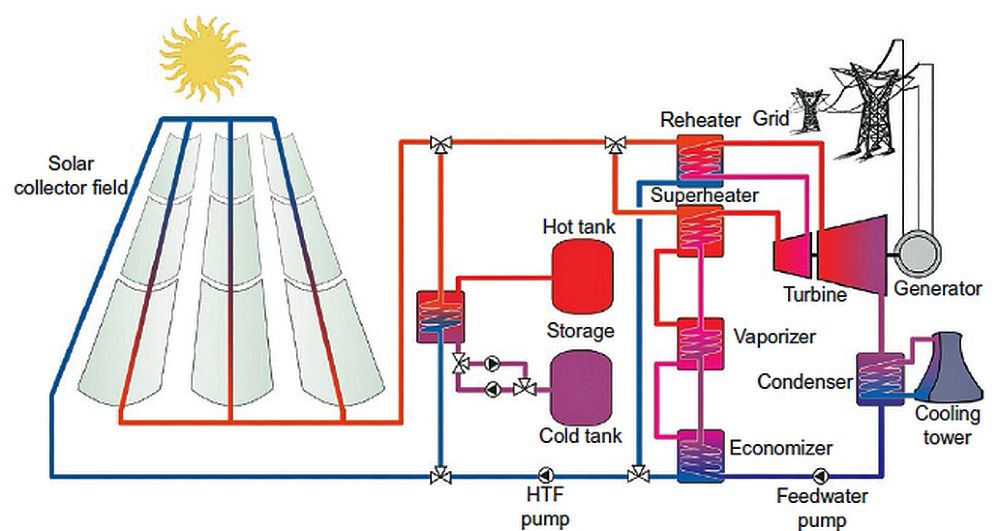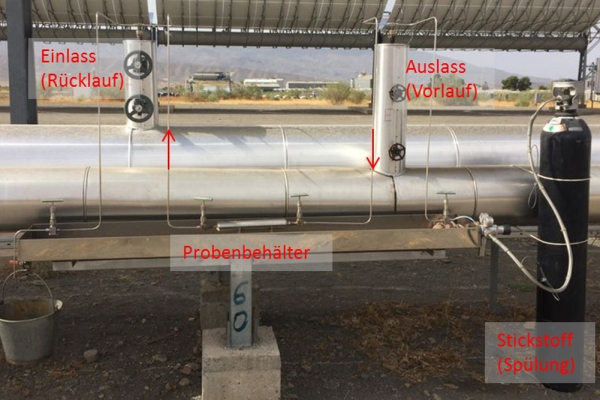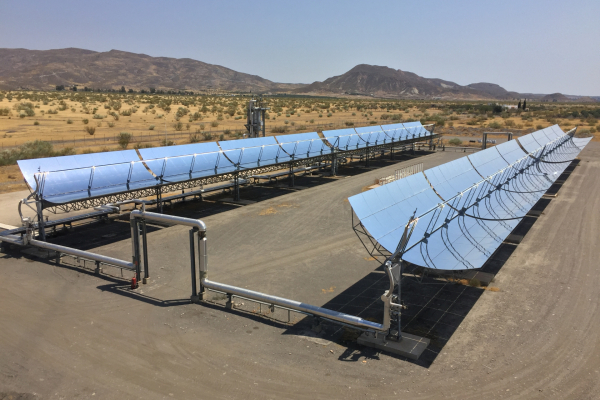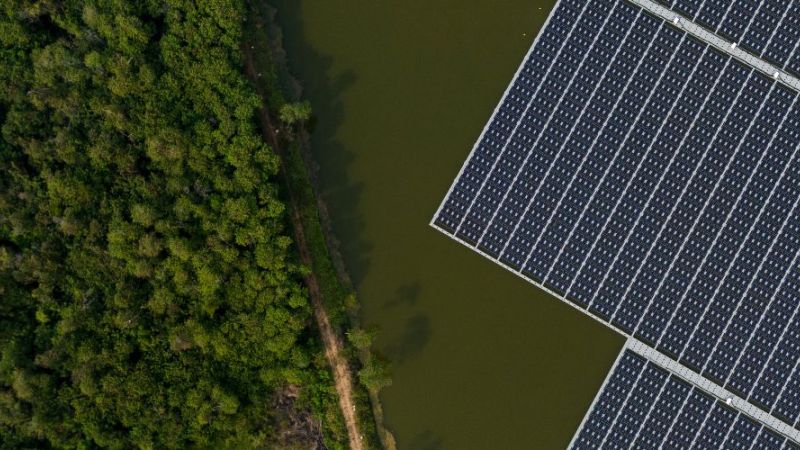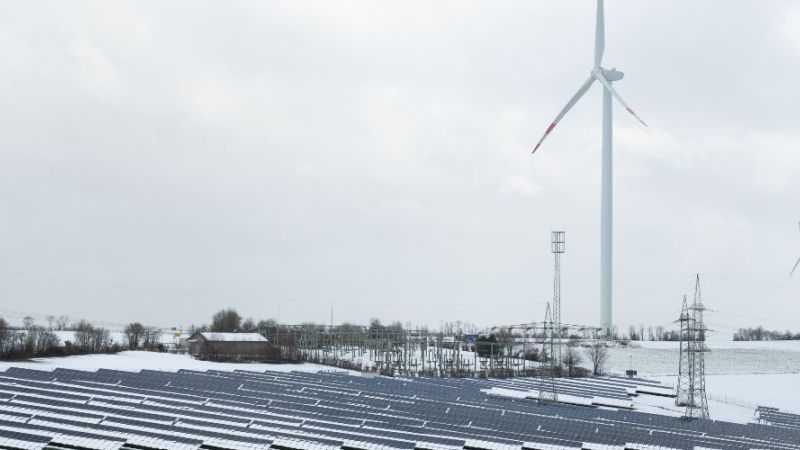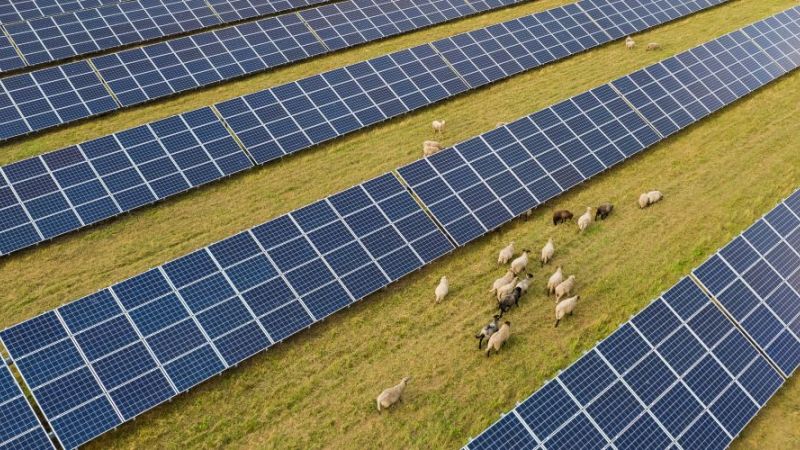Solar thermal power plants
New high temperature oil successfully demonstrated at Plataforma Solar de Almería
Solar thermal parabolic trough power plants require heat transfer fluids in order to absorb the heat generated in the solar array and transfer it to the power plant process or a heat storage system. In the SITEF (Silicon Fluid Test Facility) project, a consortium from research and industry investigated a new silicone oil, HELISOL® 5A. This is suitable for temperatures up to 425 degrees Celsius. The higher operating temperature significantly increases the overall efficiency of the power plant. The project partners demonstrated the functionality of the new silicone oil over a period of 15 months with the PROMETEO test facility at the Plataforma Solar de Almería in Spain.
Project context
Parabolic trough power plants use parabolically curved mirrors that are arranged in collectors and track the sun. In the focal line of a collector are special absorber pipes with the heat transfer oil. With the heat energy obtained, the system generates steam for electricity generation or the heat is stored for later use, for example at night. The requirements on the heat transfer media are extensive. These must not decompose chemically at high temperatures and must remain liquid at low temperatures.
The heat transfer oil currently used is a mixture of biphenyl (BP) and diphenyl oxide (DPO) (BP/DPO). It has the highest thermal resistance of any organic heat transfer media in this temperature range. However, there are some disadvantages when using these oils. The maximum operating temperature of 400 degrees Celsius limits the thermal efficiency of CSP (Concentrated Solar Power) plants. At low ambient temperatures, cost-intensive measures are necessary to ensure that the heat transfer oils remain liquid – including in the piping system. These additional investments reduce the total yield of solar thermal power plants. BP/DPO solidifies at temperatures below 12 degrees Celsius.
Research focus
Solar thermal power plants are particularly exposed to strongly fluctuating ambient temperatures in desert regions (Inner Mongolia, Atacama Desert). While the heat transfer medium is operated at 400 degrees Celsius during the day, it can reach sub-zero temperatures at night. Research work on heat transfer fluids is helping to reduce the electricity production costs of solar thermal power plants. The new heat transfer fluid tested, the HELISOL® 5A silicone oil, is aimed at establishing a new heat transfer technology in the commercial solar power plant field with optimised operating properties. These include higher system temperatures as well as safety- and application-led aspects such as improved usability, including in the cooled plant condition. Higher system temperatures increase the efficiency of the energy conversion process as well as the heat and electricity production. The volume of the storage tank can be smaller and the specific costs for thermal storage technologies can be reduced.
Innovation
The HELISOL® 5A silicone oil is a linear, non-reactive polydimethylsiloxane with a very good property profile owing to its specific structure. Particular features of the transparent, odourless and low-viscosity fluid include its extreme heat stability and longevity. In mint condition it is not subject to any hazard classification. In contrast to organic heat transfer fluids (BP/DPO), HELISOL® 5A does not form carcinogenic benzene under thermal loading. The silicone oil can be used permanently up to a temperature of 425 degrees Celsius and remains fluid even at temperatures as low as minus 40 degrees Celsius. The usual trace heating to avoid “freezing” of the heat transfer medium is no longer necessary. The efficiency increases relative to power plants operated with conventional heat transfer media and the costs for electricity generation decrease.
Results
In the lower temperature range, the new heat transfer medium features considerably greater flexibility. Oils that have been used for a long time show effects that are due to the age of the oil. Hydrogen is formed, for example. This is where the silicone-based heat transfer oil has advantages over BP/DPO. In addition, silicone-based heat transfer oils do not release critical substances such as benzene. The plants can be operated in a more sustainable, environmentally friendly and even safer way. The research groups carried out studies on the vapour pressure of HELISOL® 5A, contamination with other silicone oils and BP/DPO in the laboratory. If BP/DPO is exchanged for HELIOSOL® 5A in existing power plants, small residues of BP/DPO remain in the system. Laboratory tests showed that the contamination should be less than one per cent. The ageing process of the heat transfer fluid increases significantly with increasing contamination.
As part of the SITEF project, scientists from the DLR Institute for Solar Research operated the PROMETEO test facility at the Plataforma Solar de Almería for the first time with the HELISOL® 5A heat transfer oil at temperatures of 425 degrees Celsius. The tests, which lasted several months, were successfully completed under realistic conditions.
In particular, the focus was on the interaction with the various components in parabolic trough power plants. The project teams also adapted the receiver pipes and flexible pipe connectors (REPAs) in the PROMETEO test facility for operating temperatures of up to 450 degrees Celsius.
Practical transfer
The SITEF project has also enabled HELISOL® 5A to be successfully validated and launched on the market by Wacker Chemie AG.
The flexible pipe connectors (REPAs) from Senior Flexonics, which were adapted to the increased temperatures, and the absorber pipes from RIOGLASS showed in the demonstration operation that they can be used successfully at temperatures of 425 degrees Celsius. The products are now available on the market.

